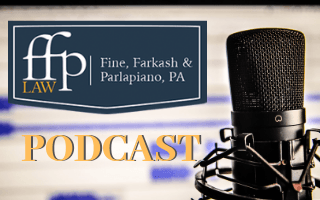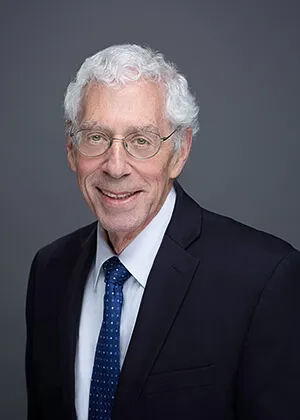FFP PODCAST: EPISODE 5 – What’s a Contingency Fee?

Interviewer: You’re listening to the Fine, Farkash, & Parlapiano podcast. Today we have on partner and founder of Fine, Farkash, & Parlapiano, Jack Fine. Jack, how are we doing?
Jack: We’re doing great today.
Interviewer: Talk about the contingent fee. That’s the fee that the personal injury law firm might collect upon a trial, verdict or a win, so-to-speak. What are the expenses that the personal injury law firm takes on in a jury trial versus a settlement, as far as maybe expert witnesses or something like that. Why is a personal injury law firm more prepared to go to trial? Why is FFP prepared?
Jack: In any litigation case involving personal injury, the law firm has to be prepared to do what’s necessary. About 10 minutes before I came on the air in this podcast, I was talking to an expert in a case. He said, ”Jack, I need to run some more tests before I make my report.” In this case, it’s in federal court and in federal court you are required to have your expert do a report. You must furnish it to the other side, and he was saying, ”Hey, I need to do some more testing. It’s gonna be expensive, but it’ll make the report stronger.” And I said, ”Sure, go ahead and do the testing.”
The contingent fee contract allows the attorney to move from a 33 and a third percent contingent fee to a 40% contingency fee if a lawsuit is filed. What I tell my clients is you gotta spend money to make money and once again our experience is that the settlements double, triple, quadruple, not in every case because I’d be lying if I said I can guarantee it in every case. Every case is different, we can’t guarantee exactly what’s gonna happen. But by and large in the great majority of cases, we do better if we file and the percentages of money to the client really increases as a result of vigorous aggressive representation.
In addition to the percentage fee increasing, we sometimes have to spend those costs just like, you know, 10 or 15 minutes ago I was talking to the expert, giving him the go ahead. In big cases where there’s millions of dollars on the line, the costs can get very expensive, but once again, you need a law firm that’s willing to spend the money, and I’m talking about potentially hundreds of thousands of dollars. If the case is worth millions of dollars, we have spent hundreds of thousands of dollars to get those millions of dollars for the client and that’s what it takes. You may have to hire an engineer, which was the expert I was speaking to just a few minutes ago. You may have to hire a life care planner. If there’s a brain injury or a serious orthopedic injury, you may have to hire a vocational expert if your client cannot work. All manner of expert doctors, whether they be radiologists or neurologists or physiatrists, which are rehabilitation doctors. And the law firm that you hire should have experience in hiring these experts, in knowing which experts to hire, and the resources to put the money into the case to hire the experts because the experts don’t work on a contingency fee. You have to write a check out of your office operating account to hire the expert, so the law firm has to be ready, willing, and able to hire whatever experts are necessary to get the best result for the client.
Interviewer: And when you’re in trial, you’re going against the insurance companies. It almost seems like an unfair advantage because they’re so big. You see so many commercials. Talk a little bit about how you at Fine, Farkash, & Parlapiano level the playing field and compete with these insurance companies in the court of law.
Jack: First off, the client needs to understand and the listeners need to understand that we’re dealing with an adversary system. Our civil justice system is an adversary system. There’s two sides. They’re represented by lawyers. The lawyers are gonna do their best for the clients. It could be your insurance company, it could be the other party’s, the defendant’s insurance company, but it’s sort of a David v. Goliath situation where the insurance company is the Goliath. They have millions of dollars of resources behind them and the plaintiff is the David. He’s the little guy, he’s fighting against the giant insurance company. But there’s a problem with this scenario because the jurors aren’t even told that there’s an insurance company. There’s a law in the state of Florida called the Non-Joinder statute, which prohibits the naming of an insurance company with certain narrow exceptions. You can’t name the insurance company even if there’s a million dollar policy. And no matter how much is in the policy, the jury doesn’t hear about it.
So an individual has to face this corporation, which is not designed to be fair. That’s not their goal. Their goal is not to be fair to the injured party. Their goal is to make money for their company to accrue as much money as possible by taking in premiums and paying out as little as possible. So it’s almost like David facing off against Goliath with one hand tied behind his back because the jurors don’t know exactly what’s going on and the resources are so disproportionate. So David needs to have an advocate. He needs to have someone who could fight Goliath and fight Goliath successfully. That’s what we try to do. We try to alleviate some of the stress that’s put upon our client by being that client’s advocate and interfacing for him when he faces off against Goliath.

Mr. Fine was born in New York, New York, and was raised in the northeast, where he studied sociology at Colby College in Waterville, Maine. He then graduated with honors from the University of Florida Levin College of Law in 1976. In law school, he was a member of Phi Kappa Phi Honor Society, was inducted into the Order of the Coif, and graduated in the top 10 percent of his class. Mr. Fine was admitted into the Florida Bar in 1976, the United States District Court for the Middle District of Florida in 1977, the United States District Court for the Northern District of Florida in 1991, and the United States Court of Appeals 11th Circuit in 1982.